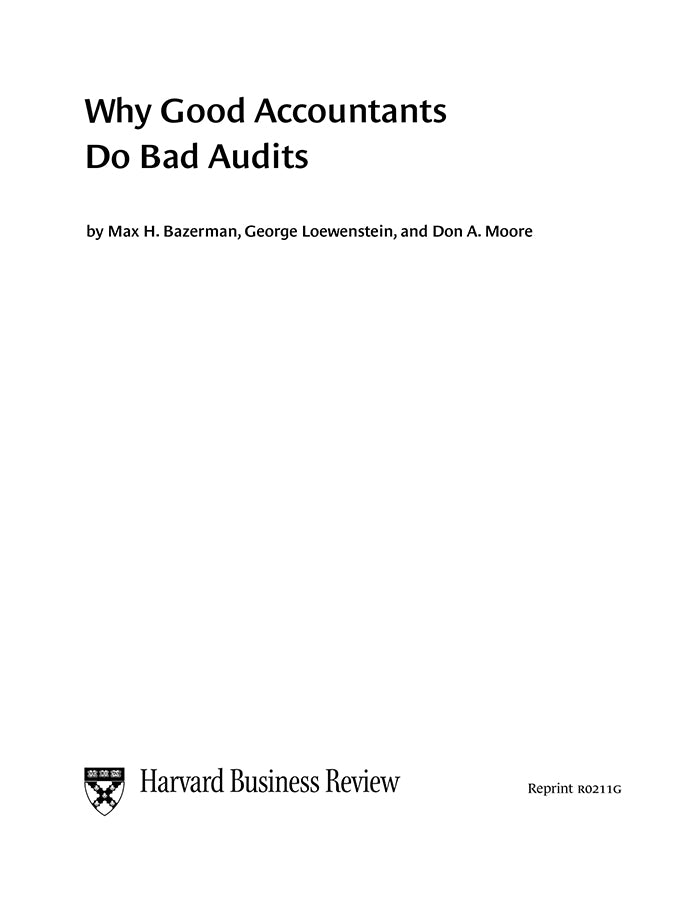Why Good Accountants Do Bad Audits
受取状況を読み込めませんでした
On July 30, President Bush signed into law the Sarbanes-Oxley Act addressing corporate accountability. A response to recent financial scandals, the law tightened federal controls over the accounting industry and imposed tough new criminal penalties for fraud. The president proclaimed, "The era of low standards and false profits is over." If only it were that easy. The authors don't think corruption is the main cause of bad audits. Rather, they claim, the problem is unconscious bias. Without knowing it, we all tend to discount facts that contradict the conclusions we want to reach, and we uncritically embrace evidence that supports our positions. The corporate-auditing arena is particularly fertile ground for self-serving biases. Because of the often subjective nature of accounting and the close relationships between accounting firms and their corporate clients, even the most honest and meticulous of auditors can unintentionally massage the numbers in ways that mask a company's true financial status. Solving this problem will require far more aggressive action than the U.S. government has taken thus far. What's needed are practices and regulations that recognize the existence of bias and moderate its effects. True auditor independence will entail fundamental changes to the way the accounting industry operates, including full divestiture of consulting and tax services, rotation of auditing firms, and fixed-term contracts that prohibit client companies from firing their auditors. Less tangibly, auditors must come to appreciate the profound impact of self-serving biases on their judgment.
【書誌情報】
ページ数:8ページ
サイズ:A4
商品番号:HBSP-R0211G
発行日:2002/11/1
登録日:2012/3/28


